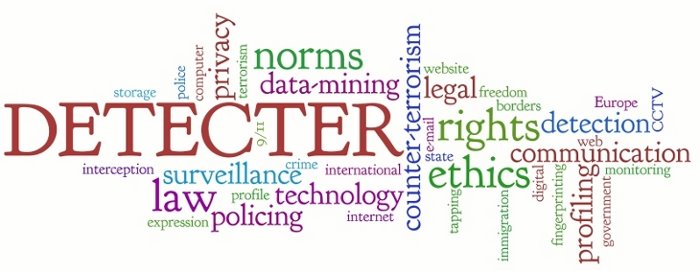Regular Independent columnist John Rentoul blogs about Liberty director Shami Chakrabarti’s appearance on last night’s Newsnight programme. He writes under the headline ‘Shameless: I Want a Surveillance Society’ - he likes to call her ‘Shameless Chakrabarti’ you see, which I presume is an attempt to imply she’s a hypocrite: ‘Oh so now you’re in favour of surveillance’ this line goes – ‘I thought you civil liberties people were against it’. This is already puzzling, as Liberty have consistently defended the principle that the security services ought to be able to use targeted surveillance against people about whom there is specific evidence to imply involvement in serious crime, though they campaign vigorously against arbitrary and unjustified use of surveillance. Rentoul’s attack focuses on her continued criticism of control orders:
What would she do instead of control orders, she was asked by Alex Carlile, the Liberal Democrat peer and independent reviewer of anti-terrorist law. After trying to hide behind trying them in court - what if there is not enough evidence for a conviction yet enough to warrant concern? - and the use of intercept evidence - not relevant in this case - she was eventually embarrassed into mumbling an answer: "Put them under surveillance."
Presumably she wants more CCTV, especially around the homes of terrorist suspects, and monitoring of their telephones and internet use.
Surveillance would either be prohibitively expensive, or intensely intrusive (thereby reinventing control orders in another form), or ineffective. Several suspects subject to control orders have already legged it to who knows where; any weakening of the controls would make it easier for them to abscond.
Given how small the numbers of people are who have been put under control orders (about 12 as of February this year) I think his argument about cost is of marginal importance, even if his assessment of the relative expense is accurate.
It also seems highly disputable that even intrusive surveillance would ‘reinvent’ control orders in another form – control orders primarily involve restrictions on people’s freedom, by imposing restrictions on who suspects can and can’t associate with, or imposing curfews and various degrees of house arrest, rather than intrusions into their privacy (though certainly the practice of 'tagging' is invasive). Now you could maybe argue that the additional invasions of privacy would always be worse than the restrictions of freedom. That would be a interesting position to take, and might even be coherent (though I suspect most would find it unpersuasive). But Rentoul’s not coming out and saying that. Instead he seems to want to have it both ways: control orders aren’t effective enough as they are, anything weaker will let the bad guys get away, but using surveillance beyond what is in place now will be just as bad. He’s painting Liberty as an organisation that is indifferent to the needs of effective policing and intelligence gathering. On the contrary their criticism of the use of control orders specifically takes aim at the claims of efficacy - take their earlier response to Lord Carlile’s previous announcement that there was no alternative to the control order regime or for that matter Shami Chakrabarti's piece in today's Times:
These orders were dreamt up by officials in 2005 and allow terror suspects to be placed under house arrest for ever without any semblance of criminal charge or trial. Apart from being profoundly unfair and un-British (the term “control order” comes from apartheid South Africa), this scheme is profoundly unsafe. A number of its targets have disappeared, and one former “controlee” had a habit of turning up, complete with plastic tag, at large public meetings attended by members of the present and past Cabinets.
And, as I said, they've consistently defended the use of targetted surveillance when the evidence supports it:
We take no issue with the use of intrusive surveillance powers per se. While intrusive surveillance will always engage Article 8 of the Human Rights Act 1998 (HRA)1 (right to privacy) such intrusion can be justified if it falls within the legitimate purposes set out under Article 8 (e.g. if done to prevent crime and threats to national security) and if it can be shown to be necessary and proportionate in all the circumstances.
What's shameless about that?


